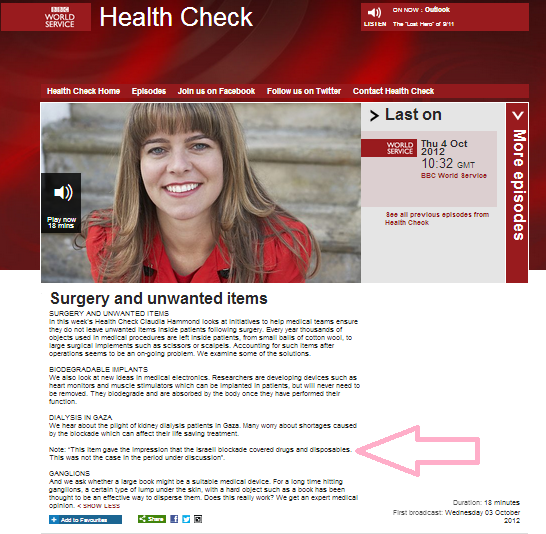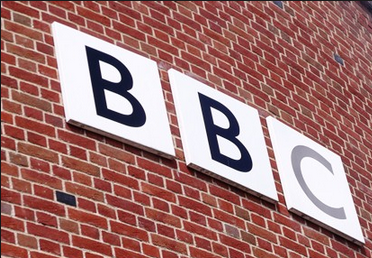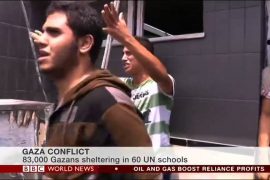This week Freedom House published its ‘Freedom in the World’ map for 2019. Once again the vast majority of the Middle East is ranked ‘not free’ with the only country that is ranked ‘free’ being Israel.
The full reports on individual countries are not yet available but here are some excerpts from the Freedom House 2018 report on Iran – which last year too was ranked ‘not free’.
“Women remain significantly underrepresented in politics and government. In 2017, Rouhani appointed two women among his several vice presidents but failed to name any women as cabinet ministers. No women candidates were allowed to run for president.”
“Women do not receive equal treatment under the law and face widespread discrimination in practice. For example, a woman’s testimony in court is given only half the weight of a man’s, and the monetary compensation awarded to a female victim’s family upon her death is half that owed to the family of a male victim.”
“The penal code criminalizes all sexual relations outside of traditional marriage, and Iran is among the few countries where individuals can be put to death for consensual same-sex conduct. Members of the LGBT (lesbian, gay, bisexual, and transgender) community face harassment and discrimination, though the problem is underreported due to the criminalized and hidden nature of these groups in Iran.”
“Freedom of movement is restricted, particularly for women and perceived opponents of the regime. Women are banned from certain public places, such as sports stadiums, and can obtain a passport to travel abroad only with the permission of their fathers or husbands.”
“Women are denied equal rights in inheritance matters.”
“Women are subject to obligatory rules on dress and personal appearance, and those who are deemed to have inadequately covered their hair and body face state harassment, fines, and arrest. Men are subject to less strict controls on personal appearance. Although Tehran’s police chief announced in December 2017 that city authorities would no longer make arrests for breaching rules on personal appearance, instead mandating education sessions by police officials, the change apparently applied only to the capital, and repeat offenders could reportedly still face detention.”
“Women do not enjoy equal rights in divorce and child custody disputes.”
“The government provides no protection to women and children forced into sex trafficking…”
In contrast, here is an excerpt from an article by the BBC’s world affairs editor John Simpson which appeared in the ‘features’ section of BBC News website’s Middle East page on February 1st under the title “The plane journey that set Iran’s revolution in motion”.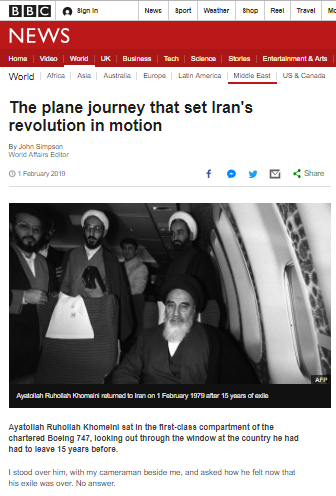
“Today, Iran is a lot more easy-going than most outsiders imagine.
The rules about women’s dress are sometimes enforced harshly, but the Islamic Republic has never clamped down on women’s rights in the way you see routinely in Saudi Arabia.
Iranian women run businesses, own property, drive cars and play an important part in politics.
The present government is probably more liberal than any other since the revolution.” [emphasis added]
The World Economic Forum publishes an annual ‘Global Gender Gap Report’ which ranks countries in terms of women’s economic participation, educational attainment, health, and political empowerment. The 2018 report put Iran in slot 142 out of 149, with Saudi Arabia one place higher. Despite Simpson’s claim that “Iranian women…play an important part in politics”, the WEF’s sub-index on political empowerment ranks Iran 141 out of 149. Saudi Arabia is ranked 127th.
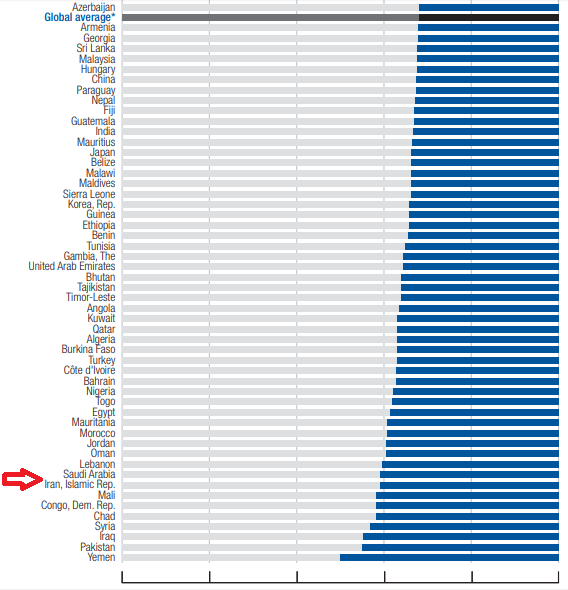
This is by no means the first time (see ‘related articles’ below) that the BBC has whitewashed the specific issue of women’s rights in Iran as well as the general picture of human rights in that country. But this is not some junior reporter dashing off a report: this is the BBC’s highly paid world affairs editor – no less – writing a feature, with time to check facts in order to avoid misleading audiences.
Yet again we see just how seriously the BBC takes its constitutional obligation to “provide accurate and impartial news, current affairs and factual programming of the highest editorial standards so that all audiences can engage fully with issues across the UK and the world”.
Related Articles:
How the BBC whitewashed the issue of women’s rights in Iran
BBC News coverage of Iranian election touts ‘moderate’ Rouhani yet again
Why does the BBC continue to describe Rouhani as a ‘moderate’?
BBC framing of Iran’s president once again shown to be redundant
BBC does Iranian ‘moderates and reformists’ framing yet again

